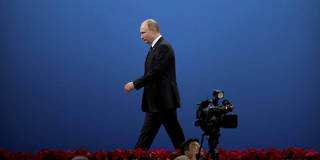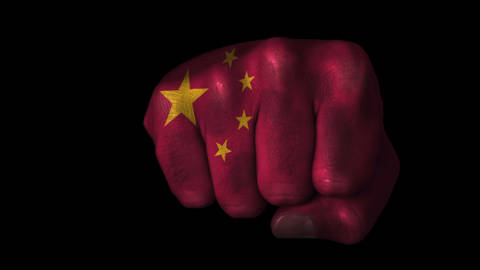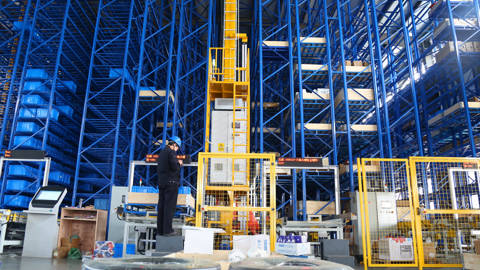What Moves Putin?
Whatever potential Vladimir Putin's leadership once held for Russia has been exhausted. And because there is no mechanism for peaceful change in the Kremlin, what remains is the grim momentum of continuing decay.
Irena Grudzińska Gross: It was unusual for US President Joe Biden to hold a press conference about the killing of the leader of ISIS, who had nowhere near the importance of his predecessor, much less of Osama bin Laden. Was this an implicit reply to Russian President Vladimir Putin’s perception that the United States, humbled abroad and divided at home, is a weakened power?
Adam Michnik: Putin certainly is convinced that the West is today weaker than ever. But his behavior results also from his anti-American paranoia. Putin thinks that anything that Americans do is directed against Russia. I do not know if what is happening in Syria is related to what is happening in Donetsk, but in Putin’s mind such a relationship definitely exists. This is typical of a certain kind of political leader. We in Poland also have such a person. Whenever Jarosław Kaczyński [the leader of the ruling Law and Justice (PiS) party] is thwarted, he blames a conspiracy among hostile forces. And the hostile forces are whoever does not applaud him loudly.
I believe Biden is a politician without illusions about Putin’s Russia. He wants to be realistic and does not want war, but he rejects the politics of appeasement and retreat. This is how I understand the declarations of Americans ever since Russia began massing troops on Ukraine’s border, and they are reasonable. Of course, this assumes that the domestic forces hostile to the Democrats and Biden – indeed, to the fundamentals of American democracy itself – will not prevail in the US. In that case, this approach may prove toothless.
IGG: What do you think about the Ukrainians’ stance? A few days ago, I heard a conversation with Timothy Snyder, who criticized Ukrainian President Volodymyr Zelensky, though not the attitude of the Ukrainian government.
AM: Zelensky came to politics from outside. He was sponsored by Ihor Kolomoisky, a Ukrainian oligarch who nonetheless did contribute greatly to his country in the first conflict with Russia in 2014. Kolomoisky financed and armed volunteer military units that proved crucial to stopping the offensive by the Donbas separatists and Russian soldiers. I never met Zelensky, and he is an enigma to me. I cannot figure out his behavior or form a clear opinion about his politics. But in the face of a threat that must be met with unity, Zelensky too often pursues the interests of his political milieu or his own person. It also strikes me as unprofessional to declare that there is no military danger while asking the West for arms. This, too, is difficult for me to understand.
IGG: Don’t you think he’s signaling that he wants to be or is in negotiations with Russia?
AM: My supposition is that he wants to talk with Putin face to face. But let’s not miss the point: The person responsible for the situation with Ukraine today is Putin. And no criticism of Zelensky can change the fact that Putin is the aggressor and Ukraine is the object of his aggression. This is fundamental, and the question that matters now is what Putin intends to do.
IGG: Exactly what are his objectives?
AM: He aimed at something when he began massing troops, but he bumped into something else. Perhaps he calculated that the West and Biden were in trouble, so now was the time to pounce. A determined Western response – or at least the appearance of one – is a surprise for him. It does not matter if he believes in the exceptionally severe sanctions that the West has threatened to impose if he invades Ukraine; he has heard them spelled out. He does not want a total military confrontation, but wise people, not only in Ukraine, remind us that nobody wanted World War I, either.
IGG: Do you think there is an immediate danger of such an outcome?
AM: I don’t believe that Putin will attack openly. I think he will apply deeply rooted Russian/Soviet tactics. That means holding back while public opinion in the West remains mobilized and waiting until the entire world breathes a sigh of relief that conflict has been avoided. You remember, this is how it was in 1968 in Czechoslovakia. The Soviet invasion that August came three weeks after the meeting of leaders in Čierna nad Tisou, where [Czechoslovak leader Alexander] Dubček and [Soviet General Secretary Leonid] Brezhnev fell into each other’s arms. It looked as if the crisis had been staved off.

Subscribe to PS Digital
Access every new PS commentary, our entire On Point suite of subscriber-exclusive content – including Longer Reads, Insider Interviews, Big Picture/Big Question, and Say More – and the full PS archive.
IGG: Today’s crisis suggests a radical change in the geopolitical status quo, especially in Europe. What happened? Has Europe changed so much?
AM: Europe has not changed that much. The supporting structure has been kicked by Putin, and the damage from his blows is clearly visible. Of course, antidemocratic forces are consolidating, and the European Union has lost some of its appeal. In Italy, [Matteo] Salvini’s Lega and Fratelli d’Italia are leading the populist charge. In Spain, there is Vox. I am shocked that the well-known Spanish journalist Hermann Tertsch, a good friend of mine, has joined them.
And then we have [Hungarian Prime Minister Viktor] Orbán, an authoritarian role model for Kaczyński. Orbán has a different idea of Europe, the idea that Marine Le Pen has in France. From a recent conference of Euroskeptics in Spain, Orbán flew directly to Moscow to drink champagne with Putin. This, too, is a surprising change: I could never imagine that the Orbán I knew three decades ago would become a pro-Putin rightist. But we do know that such betrayals are not unheard of in European history. Jacques Doriot, the number two in the French Communist Party, for example, found himself later allied with Pierre Laval, the Vichy prime minister who was executed for his collaboration with the Nazis. So, in this sense, Europe hasn’t changed much at all.
IGG: What’s your view of Europe’s approach toward Russia today?
AM: Europe behaves reasonably, perhaps not too heroically, but the Union is not composed of Winkelrieds. Of course, Germans are the most cautious, but one needs to understand their caution. A state that carries such a historical weight as the Hitler era must be cautious. I would be very restrained in criticizing Germany. I remember a conversation I had with a German political leader about either Afghanistan or Iraq. “Adam, tell me the truth,” he asked me. “What would alarm you more, a Germany that is too pacifist or a Germany that is too militaristic?” I shut up.
IGG: The United States is now sending 1,700 soldiers to Poland. Given current tensions, does that alarm you?
AM: The better US-Polish relations are, the better off Poland is. That includes military relations. But Poland’s bad luck is its government. It seems that this government is on the brink of collapse, but the electorate is very susceptible to authoritarian, populist, anti-German, xenophobic, anti-Semitic, nationalist, and isolationist slogans. International pressure will not change this government’s behavior. We Poles need to manage this situation. The West already does what it can to help, which is a lot.
IGG: Is this government also anti-Russian?
AM: This is very interesting. Rhetorically, yes. But PiS propaganda is mostly anti-EU and anti-German. There is a Polish martyrdom narrative – Katyń, etc. – but it does not translate into anything concrete. Even Kaczyński’s support for all kinds of conspiracy theories about the 2010 airplane crash in Smolensk that killed his twin brother, then-President Lech Kaczyński, and 95 others, has led only to more confusion.
There are accusations that [former Polish Prime Minister and European Council President] Donald Tusk did not force the Russians to turn over the wreckage to Poland. But the current government has not managed to get the plane back in its six years in power, and no one can have it returned unless one is prepared to declare that Putin is the most honest person in the world, innocent of any and all crimes. Many people in Poland ask if Kaczyński is aware that he is leading the country toward “Polexit” from the EU, and that his politics are pro-Russian. I don’t think he is, but I am not sure if his entourage has not been infiltrated by the Russian secret services. In any case, I will repeat what I have said many times before. If I were now in Moscow, and were a boss at Lubyanka, I would hold a daily Catholic mass for Kaczyński, praying that he does not catch a cold. A better ally they could not find.
IGG: And it’s not just Kaczyński and PiS. The European far right’s default position seems to be pro-Putin.
AM: Perhaps it is an occasional alliance, but there is no doubt that both Vox and Le Pen’s National Rally are entangled in some financial borrowings from the Kremlin. Of course, this is not decisive – they would be anti-European even without Russian money. The European project, for all its sins, corruption, and weakness, is a liberal project, committed to democracy and individual freedom. They don’t want such a project.
There are people in Europe and in the US who do not like democracy. You could see this from the slogans that accompanied the riot by Donald Trump’s supporters at the US Capitol on January 6, 2021. And all the lies and falsehoods by Republicans since then have heightened the danger. A society which has lived a long time under a democratic regime becomes susceptible to democracy fatigue – a conviction that democracy is hedonistic, does not express higher values. Such a sentiment works like carbon monoxide, like a noxious gas. People lose their reason. Some become convinced that their life’s purpose is to die for their fatherland, for their faith, and so on.
IGG: I would like to return to the scenario for the coming months. You said that Putin will postpone the invasion.
AM: In Russia, all depends de facto on one man. When I say “all,” I think about decisions. Putin may not be able to implement each scenario, but he has concentrated political power even more than Stalin did. Stalin, at least formally, was limited by his “politburo” – a political body that could in principle say no to him, though of course it didn’t. Putin has no politburo, he is all powerful, an absolute monarch, a Caesar.
But I am convinced that, after 22 years in power, Putin has nothing positive to contribute to Russian politics. Whatever potential his leadership once held for Russia has been exhausted. And because there is no mechanism for peaceful change in the Kremlin, what remains is the grim momentum of continuing decay. It’s like a bicycle, which must move forward to remain upright. The question is when the bicycle will stop and how it will fall.
Something has to happen, because Putin wants to remain upright. So, he will choose what Russians call “little victorious wars.” It can be Kharkiv, Odessa, Moldova, Kazakhstan, just like it was with Crimea. This is similar to how a narcotic works: euphoria, followed by a craving for another dose.
IGG: So, you think there is an internal Russian propulsion toward aggression.
AM: I remember the Kremlin’s astonished reaction to the election of Zelensky. The Russians thought it was impossible that he would be elected. [Former President Petro] Poroshenko held all the cards: the army, money, power. He had to win, because in Russia, at least, he would have. Instead, Poroshenko lost decisively and accepted his defeat.
Stunned, the Kremlin fell silent. But, before long, anxiety reared up. If such a guy, a young actor from a popular television comedy show, could win a presidential election in Kyiv, then, holy shit, perhaps such a thing could happen in Moscow as well. That is where Russia is now. The regime is worried, uncertain, doesn’t know what needs to happen.
This can last for some time; it is a stability of decay. You remember how it was with Brezhnev. Then, too, everyone knew that the man in charge was a walking mummy, yet they kept him until the end because the Soviet system had no reliable mechanism to bring about change. This is why it is impossible to predict what will happen with Putin and Russia. But something will. After all, even Stalin could not engineer a politburo decree banishing death.




